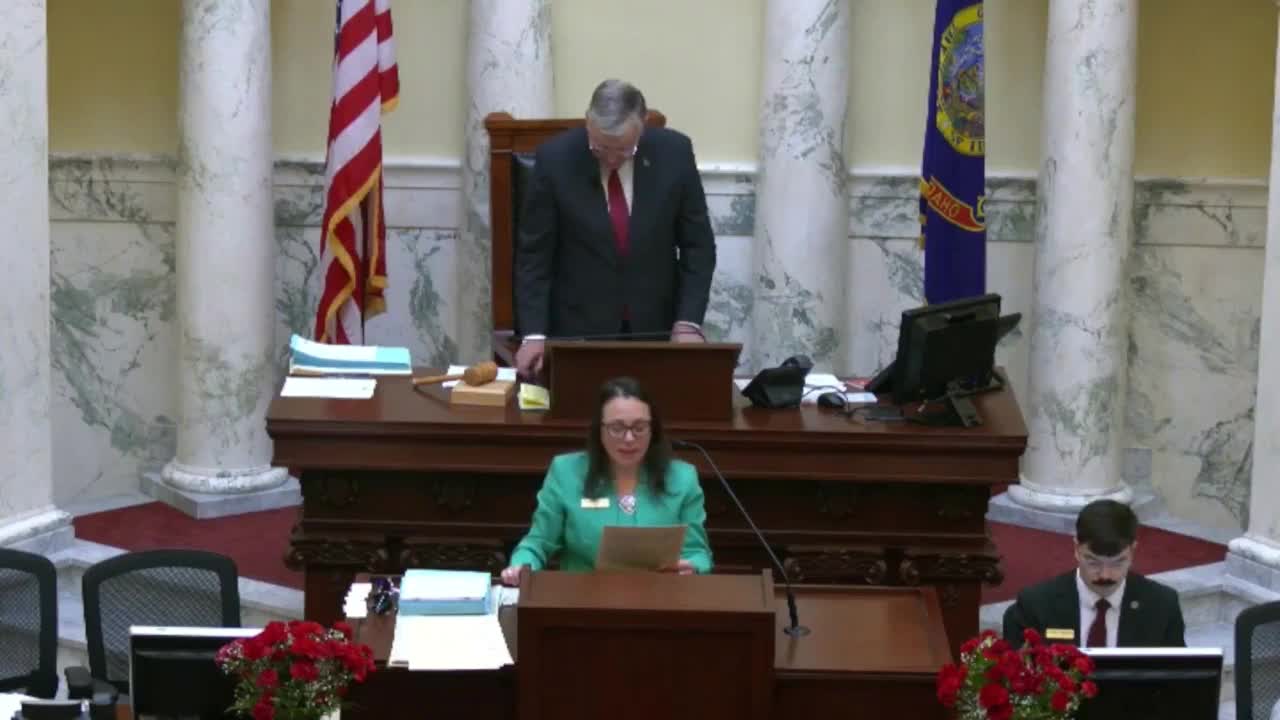Article not found
This article is no longer available. But don't worry—we've gathered other articles that discuss the same topic.

Votes at a glance: bills the Idaho Senate passed March 10, 2025
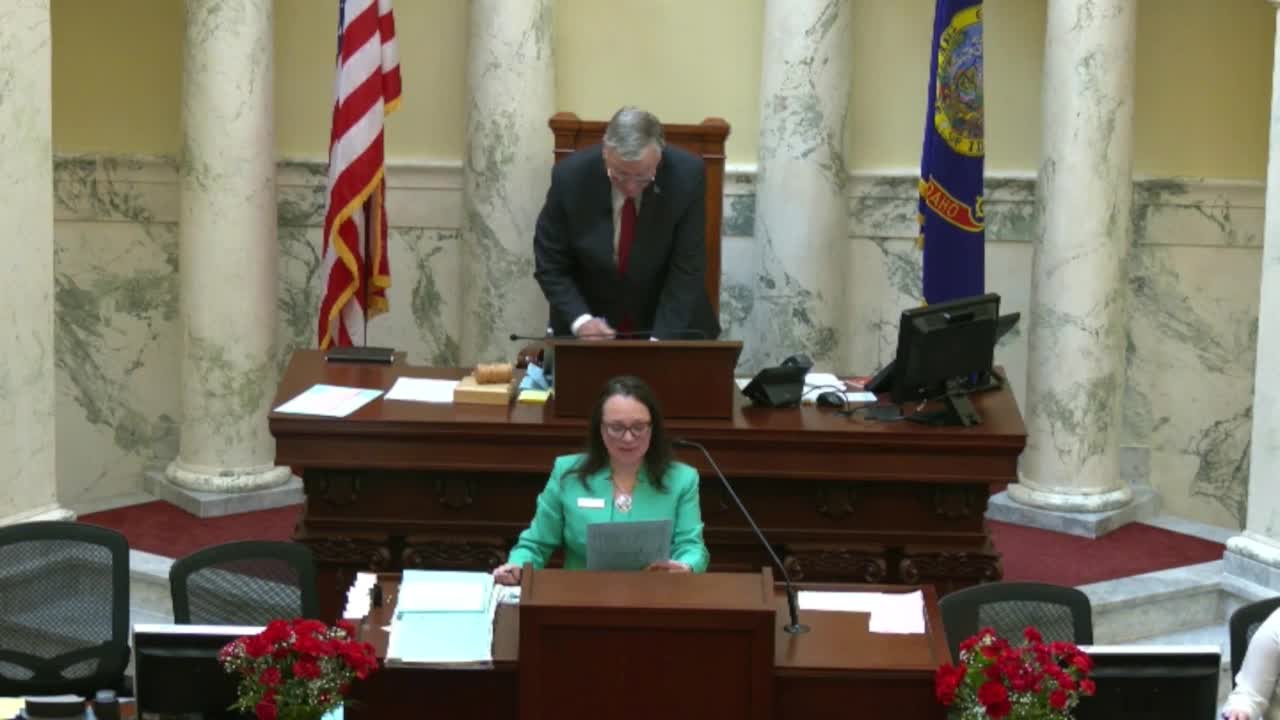
Senate redirects more mine‑license tax to abandoned‑mine fund, adds advisory committee and reporting
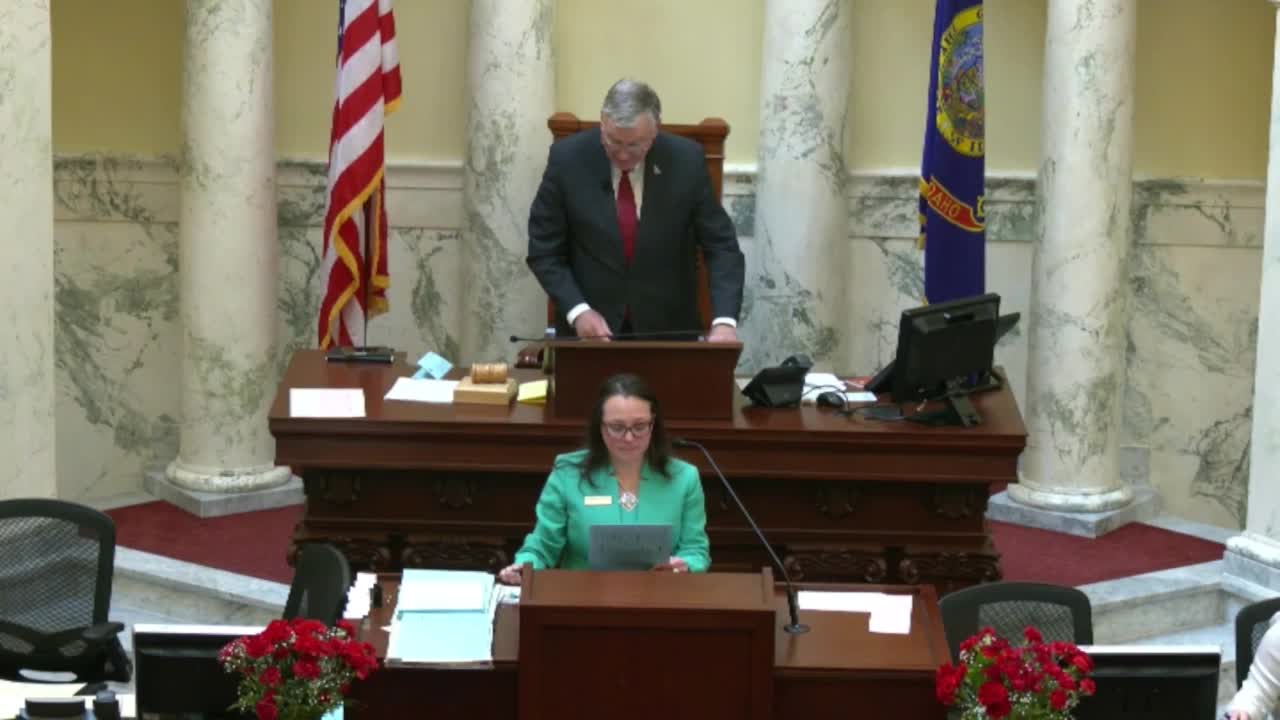
Senate updates official‑ballot authentication options to include stamps, watermarks or unique IDs
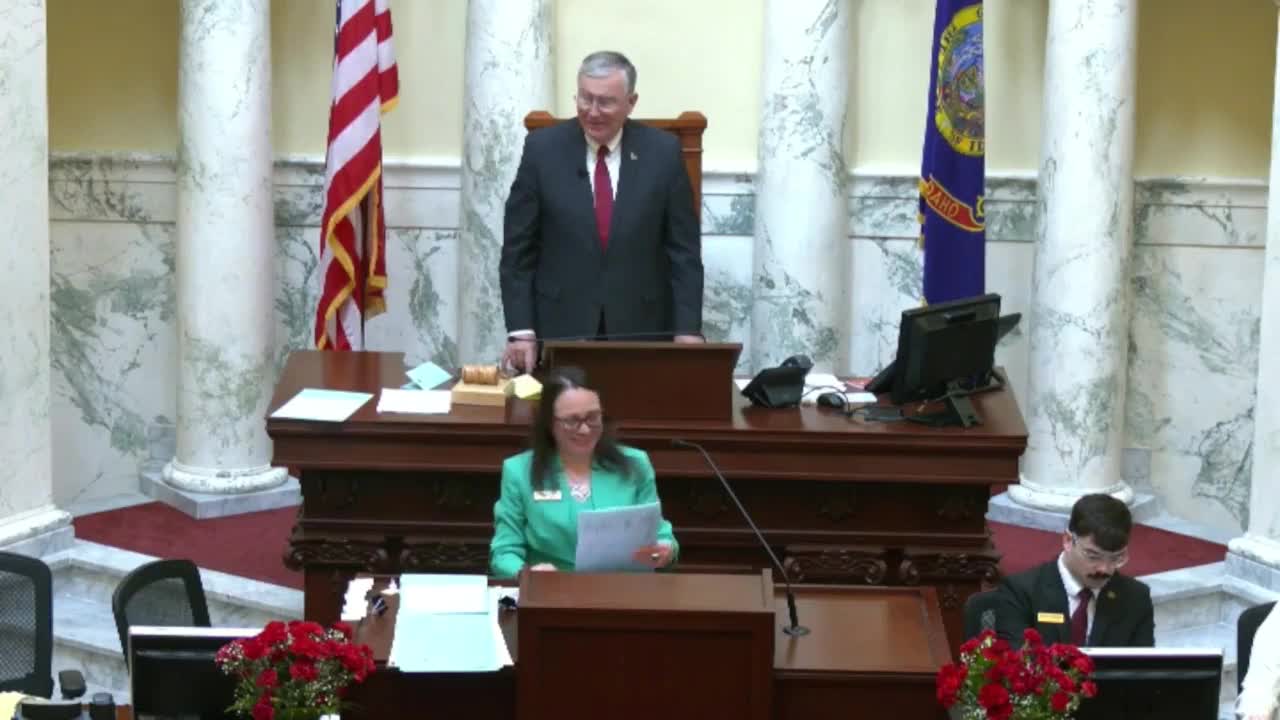
Senate votes to move Emergency Medical Services bureau to Military Division, calls EMS a critical service
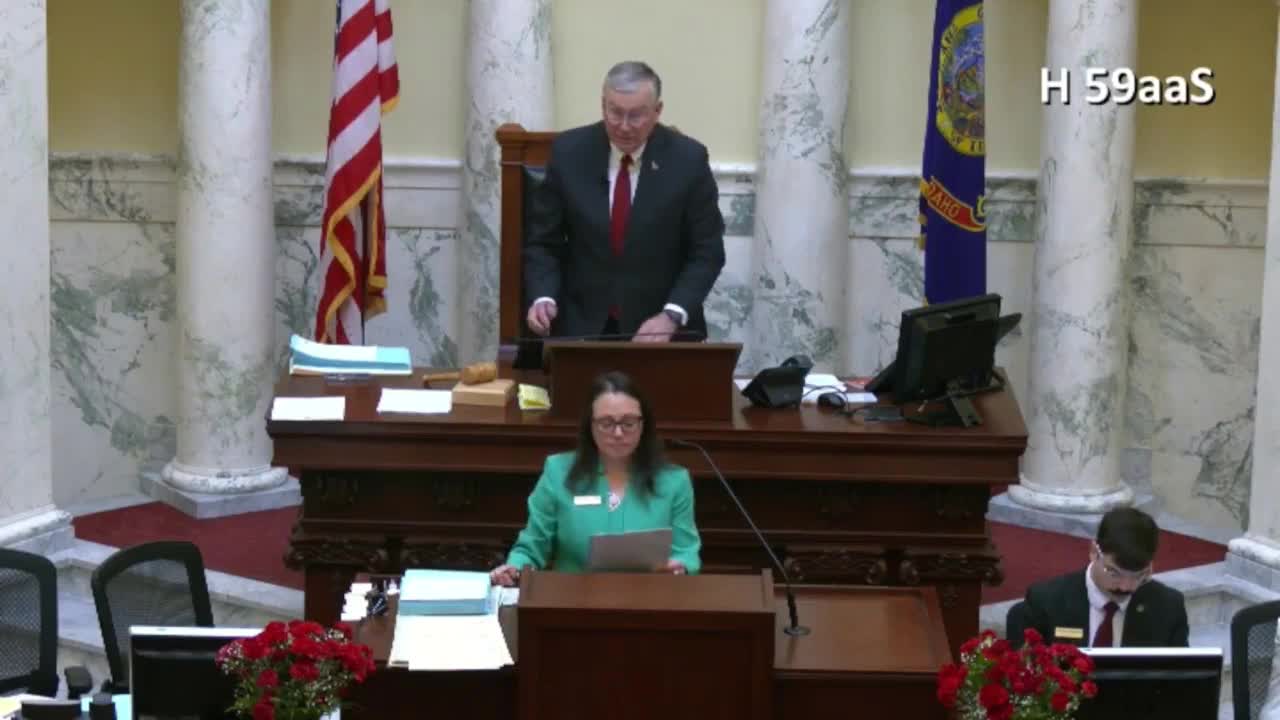
Senate approves Medical Ethics Defense Act after lengthy debate over conscience protections
